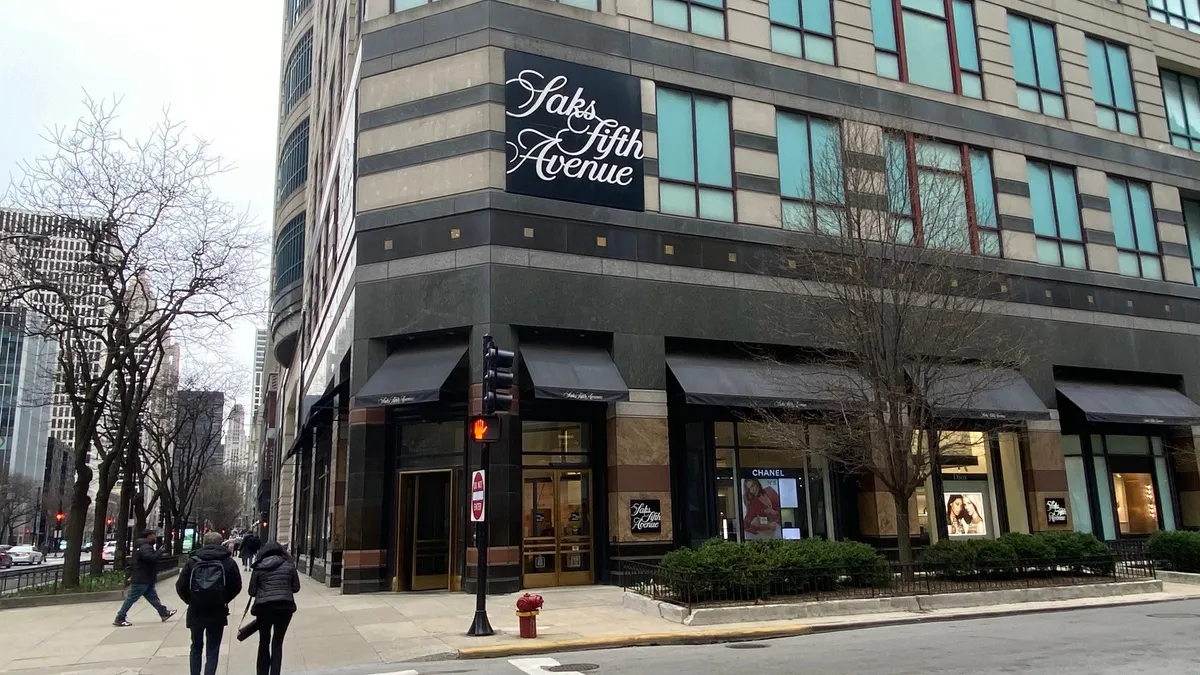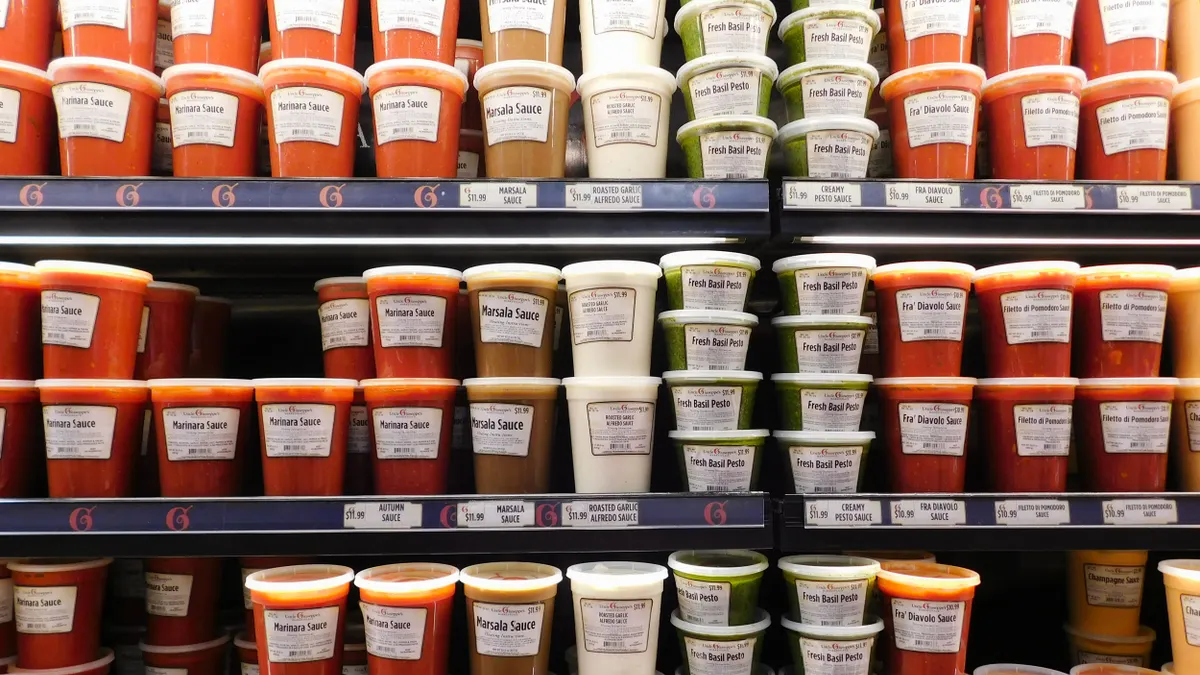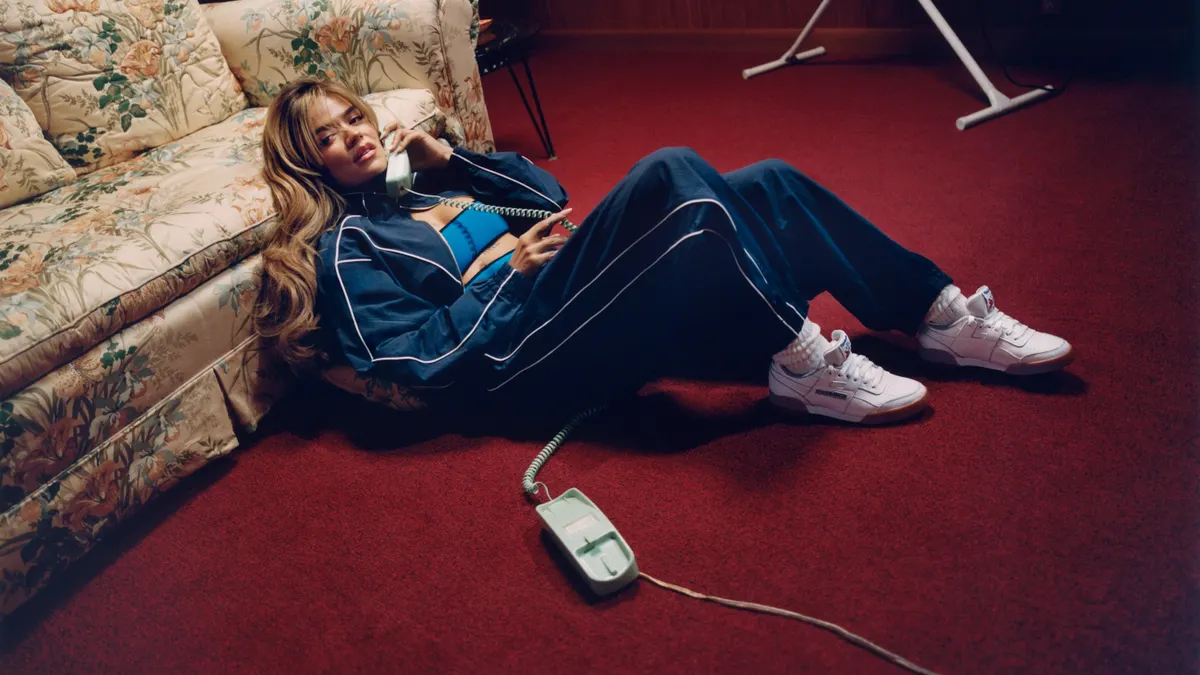There’s never been a presidential election cycle quite like this before.
The highly contentious nature of the primaries ultimately resulted in the selection of two historically unfavorable candidates, leaving consumers — and retailers — feeling uneasy about this year's presidential election.
Retailers are uncertain about the effect it could have on the holiday shopping season, which is typically the biggest sales period of the year for many retailers. In an August survey gauging retailer sentiment on holiday spending, market research firm Fung Global Retail & Technology and predictive analytics provider First Insight found the majority of the 102 industry leaders surveyed believe the election will have a "strong impact" on consumer spending during the second half of 2016. But it's not clear whether the election will be a good or a bad thing for retailers this holiday season: 33% predicted it would have a positive effect on spending, 31% said it would be negative, and 35% said neutral.
Historically speaking, presidential elections have a dampening effect on retail sales leading up to Election Day: The debates heat up, consumers tune in and shopping trips are put on hold. But this year's election cycle has been anything but typical. Analysts say the highly politicized rhetoric of both candidates has made the current election an even bigger distraction for consumers, causing some concern for retailers as they execute their holiday strategies.
Retailers will need to stay nimble over the next few months to capture the attention of shoppers as the presidential election grows nearer.
If history is anything to go by
Presidential elections are generally coupled with a drop in foot traffic leading up to Election Day, according to an analysis of enclosed mall traffic during recent presidential elections by retail analytics firm ShopperTrak.
During election week in 2004, mall foot traffic declined 2.4% compared to the same week the year before. But traffic picked back up 0.8% for each week after the election through the rest of the holiday season. In 2008 when Barack Obama edged out John McCain as the economic recession hit, mall traffic dropped 6.3% the week of the election from the year before. When the analysis was broadened from just malls to include national retailers in 2012, ShopperTrak found traffic fell 12.4%.
During election years, retailers walk a fine line in October and November, with the roll-out of holiday shopping campaigns often caught between the election and the start of the holiday season. For retailers, the focus in November is on ramping up holiday plans up to Black Friday — which remains the biggest traffic and sales day of the year for many retailers, despite the rapid growth of Cyber Monday and holiday sales starting earlier every year.
“As elections distract shoppers at the beginning of [November], I anticipate traffic dropping in the first 2 weeks,” Shelley Kohan, analyst at in-store analytics provider RetailNext and professor at the Fashion Institute of Technology, told Retail Dive. “What you might see more are election sales [the weekend following Nov. 8], which might help retailers recap some of that distraction.”
This year's election is a "major election," meaning that no matter who is elected it won't be the incumbent president and there will be change. With the last major election occurring during an economic recession, Kohan cautions it is difficult to predict whether past data will hold true for what retailers can expect this year. But in the long run, Kohan believes the election won't be the most significant factor affecting retail sales — there are bigger economic forces at play that could impact holiday shopping.
“I think there are other more pertinent factors that impact shopping, especially going into the holidays,” Kohan says. “For example, economic factors like oil prices, unemployment, interest rates, inflation — I think holiday season in general is geared up to be very positive based on current economic indicators and I don't think the election is going to derail those positive projections.”
But it can be a vicious circle: These larger factors will inherently be influenced by whoever gets elected on Nov. 8. Retailers and trade associations are already taking note of how the next presidential administration — whether it's Trump or Clinton — may alter policies critical to the industry, including trade, tax reform, labor and payments. For now, retailers planning for the holidays can only contend with what's right in front of them — one of the most contentious and distracting presidential elections in recent memory.
[Editor's Note: Retail Dive plans to explore how the policies of a future Donald Trump or Hillary Clinton presidency could impact the retail sector in another piece coming soon.]
Consumer psyche suffers from election cycle's ‘circus nature’
The 2016 presidential election presents two major challenges for retailers: heightened consumer uncertainty and an unprecedented level of media buzz about the election, both of which distract shoppers from spending money.
The contentious nature of the election is driving uncertainty among consumers, Mark Cohen, director of retail studies at Columbia University’s Graduate School of Business, told Retail Dive. Between Hillary Clinton’s emails and Donald Trump’s rhetoric, this election has driven a wedge in the American populace.
“Our society is in a tissue thin place at the moment,” Mark Cohen said. “The conditions are tinder dry for upheaval and it has occurred in the past. Retailers have got to be very concerned about what that is going to do to the ethos and attitude of their customer in the upcoming 4 or 5 months.”
The anxiety weighing on the consumer psyche is expected to hurt retailers in the short run, with Marshal Cohen, chief industry analyst at the NPD Group, predicting that the election will become a bigger distraction for shoppers after the first debate held on Monday night.
“I would suspect because of circus nature, the absurdity, the amount of coverage between social media, online print, the distraction will be bigger [this year],” he told Retail Dive. “All of a sudden people will stay home instead of going shopping. You’re going to see people hear about how bad the economy is, and it will make people nervous. There will be a dip in consumer confidence, but it’s mostly because of rhetoric.”
While many of the controversial comments are all talk, that doesn't mean consumers won't take them to heart, he said. Social media's real-time presence in this election means that consumers are getting a near-endless earful of who said what. The growing buzz ahead of the election and the holiday season brings challenges for retailers, who will need to edge out the media storm and promote shopping as an escape for the consumer.
How retailers are reacting to the election
Despite the challenges presented by the election, some retailers see an opportunity. Depending on the culture, brand ethos and target market of a retailer, authenticity and transparency can win over consumers this holiday season, according to Kohan.
Certain retailers are leveraging the election to establish a bond with their target demographic. Earlier this month, American Eagle debuted an effort with nonprofit Rock the Vote to promote a new line of products that encourage young shoppers to vote. While politically neutral between the candidates, the retailer is aligning itself with the sense of civic duty present in its core millennial demographic.
Other retailers are going even further, with some CEOs going so far as to publicly endorse one of the two candidate — despite the fact that public endorsements could alienate some potential consumers.
Starbucks CEO Howard Schultz recently endorsed Hillary Clinton. In a conversation with employees earlier this year, he described the election as “almost a circus of yelling bombastic attacks, of a lack of respect, of a lack of dignity.” Unlike most executives, Schultz doesn’t shy away from sharing his political leanings,
Because of the contentious nature of this election, more retail executives than usual have felt compelled to speak out. Notables including Jeff Brotman, co-founder/chairman of Costco, and Peter Lowy, CEO of Westfield, have pledged their support for Clinton.
It's also pretty clear Amazon CEO Jeff Bezos isn't a Trump supporter. After Trump criticized Bezos' ownership of the Washington Post, the CEO slammed the candidate in a March Q&A with Washington Post Executive Editor Marty Baron: "This is not an appropriate way for a presidential candidate to behave."
Support for the other side of the ballot has been less vocal. The main notable retail endorsement for Trump comes from Home Depot founder and former CEO Bernard Marcus, who endorsed Trump in a June article he penned for Real Clear Politics. Little reaction has surfaced.
“There are a lot of CEOs and companies that are trying to create these niche environments which relate to consumers,” Kohan said. “Sometimes transparency can be positive for a company.”
After the election, the holidays will still be there
Retailers must first face the hurdles of this year's presidential election before they can move full swing into the holiday shopping season.
As a consultant for Blacks Retail, a company that forecasts trends and offers consultancy services to small retailers, Matt Pruitt has been thinking about what retailers can do to minimize the impact of the election on their businesses.
For the last 6 months, he has been preparing his clients to sort out inventory that's most relevant to shoppers during uneasy times. People are still going to spend money, but where they focus their dollars will change. For example, necessities will still get a lot of sales, but special occasion apparel and accessories won’t do as well. The best thing retailers can do is to help consumers wade through the uncertainty by promoting positivity, Pruitt advises.
“At the end of the day, as a store owner you are in a selling organization,” he told Retail Dive. "You can talk about managing inventory, but all that doesn't matter unless you have a sales team projecting a positive vibe on the floor, regardless of what is going on in the world.”
In a report he co-authored in August, Pruitt wrote that the uncertainty caused by the election is exaggerated by a natural slowing of the retail cycle, which he expects will ramp back up in the fall of 2017 regardless of who is in the White House. But he warns that retailers could feel an initial spending shock just after the election. “If we have potential presidents condemning whole classes of people, using fear tactics, that doesn’t incentivize people to go spend money,” he said.
But at the end of the day, experts agree people are still going to spend money this holiday season.
Analysts generally feel good about the sales forecast going into the holidays. RetailNext recently reported an expected 3.2% increase in year-over-year holiday sales, with digital sales rising 14.9% from the year-ago period. By Thanksgiving, whatever angst that consumers have in relation to the election will have passed, leaving the weekend after the big day a major opportunity for retailers to regain shoppers just before the all-important holiday season, according to RetailNext's Kohan.
After the initial pinch caused by the election, "the economy will chug along and retail will rebound in a holiday mindset, albeit a little different here and there," NPD Group's Marshal Cohen said.
Because whether America votes Trump or Clinton into the Oval Office, Cohen imagines most consumers will still have the same attitude he does: “I’m not going to not buy my daughter a Christmas present just because of who is in the White House.”
This story is part of our ongoing coverage of the 2016 holiday shopping season. You can browse our holiday page for more stories.






















